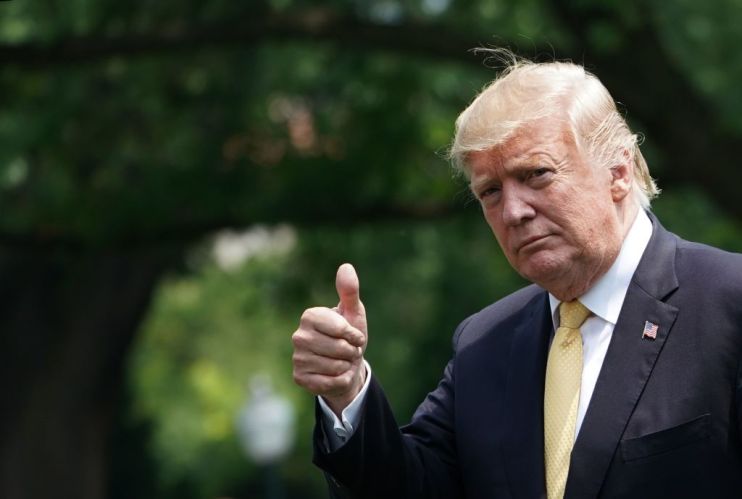Non-farm payrolls: Donald Trump bolstered by booming US jobs market

US employment surged in January despite political chaos, handing President Donald Trump a weapon in his fight for reelection this year.
The world’s largest economy added 225,000 jobs in January, non-farm payrolls data showed today, well above the 160,000 predicted by economists.
Unemployment rose marginally to 3.6 per cent, close to record lows, as labour force participation continued to rise.
The construction, health care, and transportation and warehousing sectors all added jobs at a healthy clip in January, the US Bureau of Labour Statistics said.
January was a chaotic month in US politics, with Trump becoming only the third US president to be impeached – put on trial by the Senate. He was acquitted on Wednesday.
A “phase one” trade deal between the US and China was also signed last month, however, boosting the sentiments of markets and employers.
Ayush Ansal, chief investment officer at the hedge fund Crimson Black Capital, said: “A good week for President Trump just got better.”
“First he was acquitted in his impeachment trial and then the January US non-farm payrolls print came in well above expectation.”
Erik Norland, senior economist at CME Group, said: “This employment report is about as good as it gets.”
Trump yesterday held a rambling press conference during which he basked in the not-guilty verdict handed down by the Republican-controlled Senate.
The President had been accused by Democrat-controlled House of Representatives of abusing the office of president by withholding aid from Ukraine in exchange for dirt on his political rival Joe Biden.
Up for reelection at the end of this year, Trump defiantly said: “I’ll beat them again.”
Today’s jobs report will bolster the President’s argument that the economy has boomed under his watch. Unemployment is close to record lows, while stock markets are achieving record highs.
However, Trump’s trade war with China has dented global economic confidence and hurt US manufacturers.
The US economy grew by 2.3 per cent in 2019, well short of both the 2.9 per cent seen in 2018 and the White House’s three per cent target.